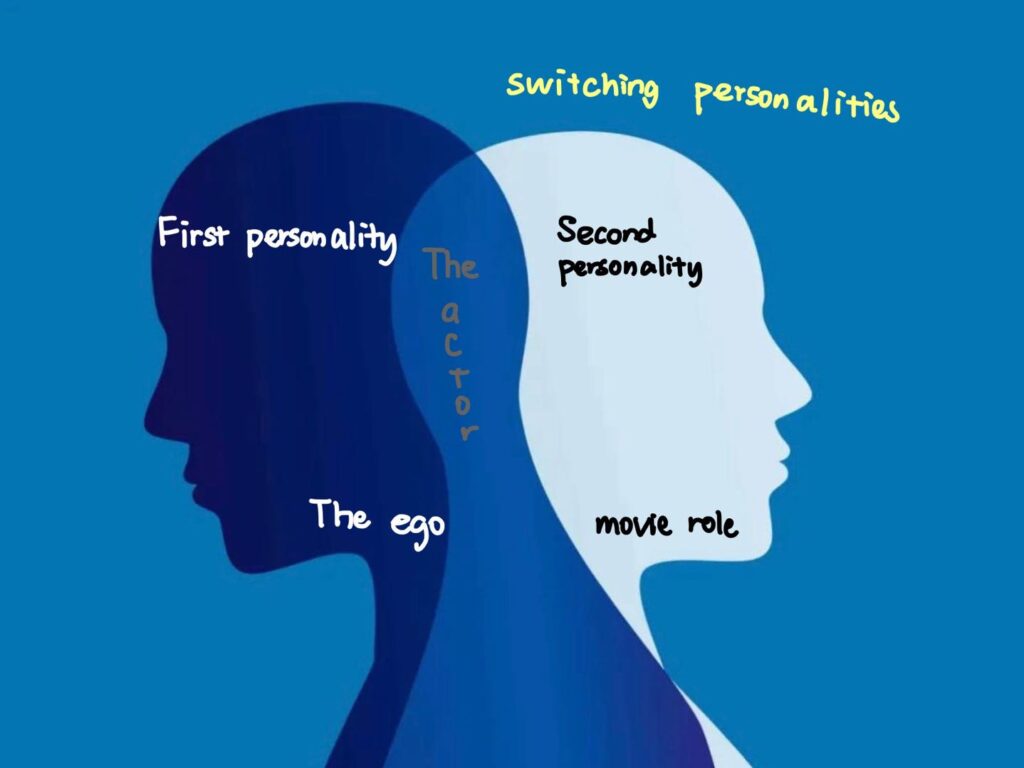
When I perform, I usually show a different state than I usually do in my daily life. When I’m singing I’m a confident and expressive person, but in my normal life, especially during my time studying in the US, I usually don’t interact with other people. The difference between onstage and offstage makes me feel like I become the character I play when I step on stage.
The first self and the second self are the first two theories of the self put forward by the French actor Coghlan in his book “The Double Personality of the Actor”, so that it is Coghlan who first completes the problem. But as early as the 18th century, when Diderot was watching the famous French actress Clairon, he had already vaguely discovered this unified and divided state of the actor’s “incarnation”. After detailing the state of Clairon’s performance, he said, “At this moment, the actress is a double personality: she is the petite Clairon and the great Agrippina.” The actor’s first self is the “control”, like a third-person monitor.
Actors have dual personalities. In “The Double Personality of the Actor”, there is a passage that says: “The two natures that exist in the actor are inseparable, but the first self of the character should be imagined as the main one. The first self is the soul, the second self is the body.”The ideal state of the actor is that the second self is like a pile of soft clay in the hands of a sculptor, who can make it into various shapes and play various roles as he pleases. And after playing another person, the actor should be able to return to the first self.
The actor’s two selves should be one. They are interdependent and inseparable. The actor controls the character and the character reacts to the actor. They complement each other. The first self controls the role and the second self influences the actor into the role.
The actor has two selves in performance, the first self and the second self. The first self is the ego, which is the actor himself, and the second self is the superego, which is the character portrayed by the actor. In the Chinese acting system, the actor is supposed to become the character during the performance, that is, the first ego is integrated with the second ego, but at the same time the first ego also controls the performance of the second ego. The contradiction between the actor and the character is, in general, that the actor himself is both the creator and the instrument of creation, as well as the created work of art itself. This explains why many viewers hate the bad guy in the play in their lives. At the same time, the audience loves a character and may also love the actor at the same time.
If one abandons the use of the first self and becomes totally immersed in the character, it can cause many problems.
For example: Lack of typicality in the role.
The actor portrays a character as a personality within a commonality, a typical character distilled. Or a collection of images. And the actor in the process of preparing the script, in the experience of life, and experience the role in the process of refining a suitable role for themselves. A role that starts from the first self, the actor himself. And if one is completely in the role, there is a lack of control and depth. — will come out of the role like that, but superficial.
The actor builds the character based on the script and life experience. Some of the roles in the script are known to the actor, and they usually fit the actor’s personality and have similar experiences, so the actor will do a great job in the role. Some roles are not known to the actor, so it becomes difficult to play them, so the actor needs to experience what the character is going through.